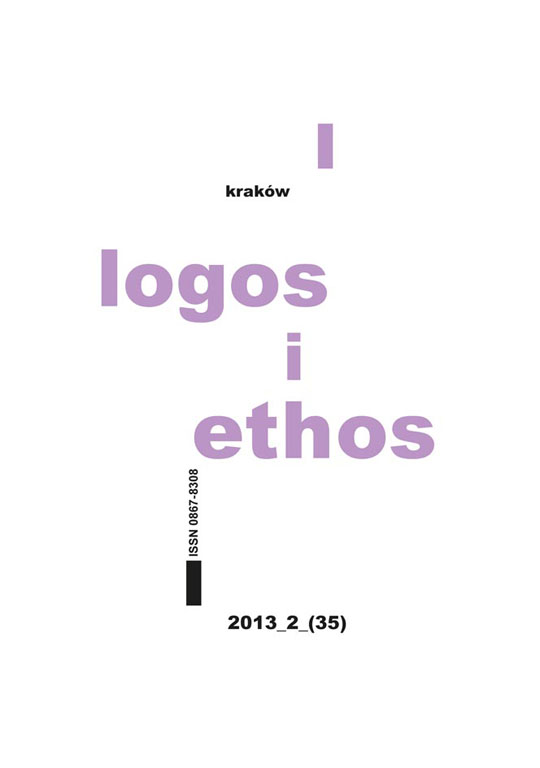Depresja jako „choroba na śmierć”
DOI:
https://doi.org/10.15633/lie.64Słowa kluczowe:
depression, Kierkegaard, mental illness, Calhoun, existential philosophyAbstrakt
Depression is not a popular philosophical problem, despite the fact that it is one of the most frequent psychopathologies nowadays. The aim of the article is to consider the problem of depression as a philosophical one in terms of Cheshire Calhoun’s analytic work on depression and S.ren Kierkegaard’s philosophy of despair and anxiety. The author shows that the state of depression is connected to the sick man’s failure to be a living being due to the process that Calhoun calls “the defeat of an agency”. Calhoun claims that a man stops to be an active person because his will is disengaged due to his feeling of estrangement from his normative outlook of self-conception, his disbelief in the effectiveness of instrumental reasoning and lack of confidence in one’s security from misfortune and harm. The permanent state of this defeat leads to being disengaged from one’s very roots of being a motivated person. At this point living the being is opened to despair and anxiety, which are the means of creating a state of being as a “defeated agency”. The analysis of Kierkegaard’s work brings a new perspective of depression. A depressed person is one who is possessed by despair and anxiety. The analysis of different forms of despair and anxiety bring new light to the process of becoming depressed. It shows that the depressed person is in a permanent state of being “cut off” from life. This perspective leads to the conclusion that depression could be seen as Kierkegaard’s „Sickness Unto Death”.
Pobrania
Opublikowane
Numer
Dział
Licencja
Prawa autorskie (c) 2013 Krzysztof Kunisz

Utwór dostępny jest na licencji Creative Commons Uznanie autorstwa 4.0 Międzynarodowe.
Autorzy publikujący w czasopiśmie udzielają jego wydawcy zgody o następującej treści:
- Autor zachowuje autorskie prawa majątkowe do utworu, a jednocześnie udziela wydawcy czasopisma zgody na jego pierwszą publikację w wersji drukowanej i wersji online na licencji Creative Commons Uznanie autorstwa 4.0 Międzynarodowe oraz zgody na wykonywanie opracowań, w tym przekładów.
- Autor ma możliwość udzielania zgody niewyłącznej na opublikowanie utworu w wersji, która ukazała się w czasopiśmie (np. zamieszczenia go w repozytorium instytucjonalnym lub opublikowania w książce), wraz z informacją o jego pierwszej publikacji w czasopiśmie.
- Autor może umieścić swój utwór online (np. w repozytorium instytucjonalnym lub na swojej stronie internetowej) jeszcze przed zgłoszeniem utworu do czasopisma.

